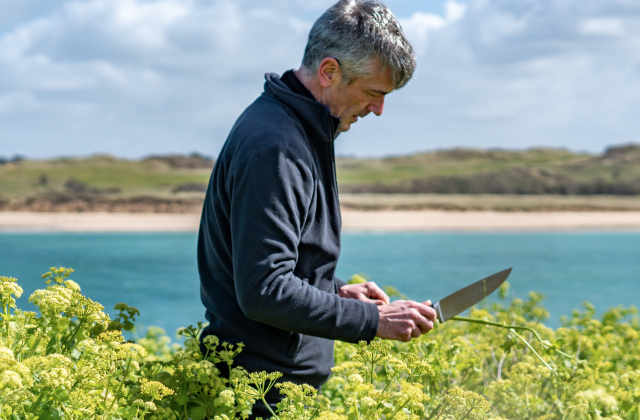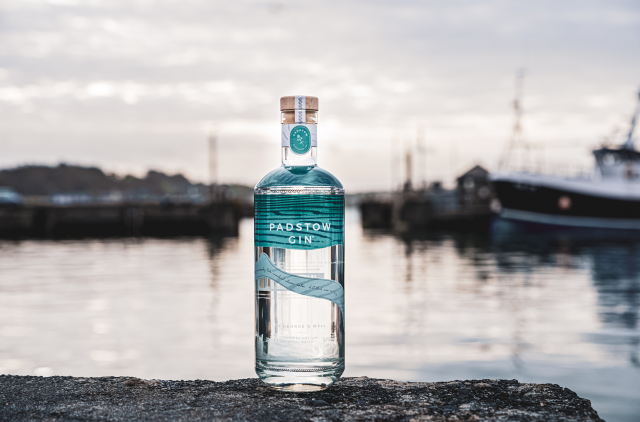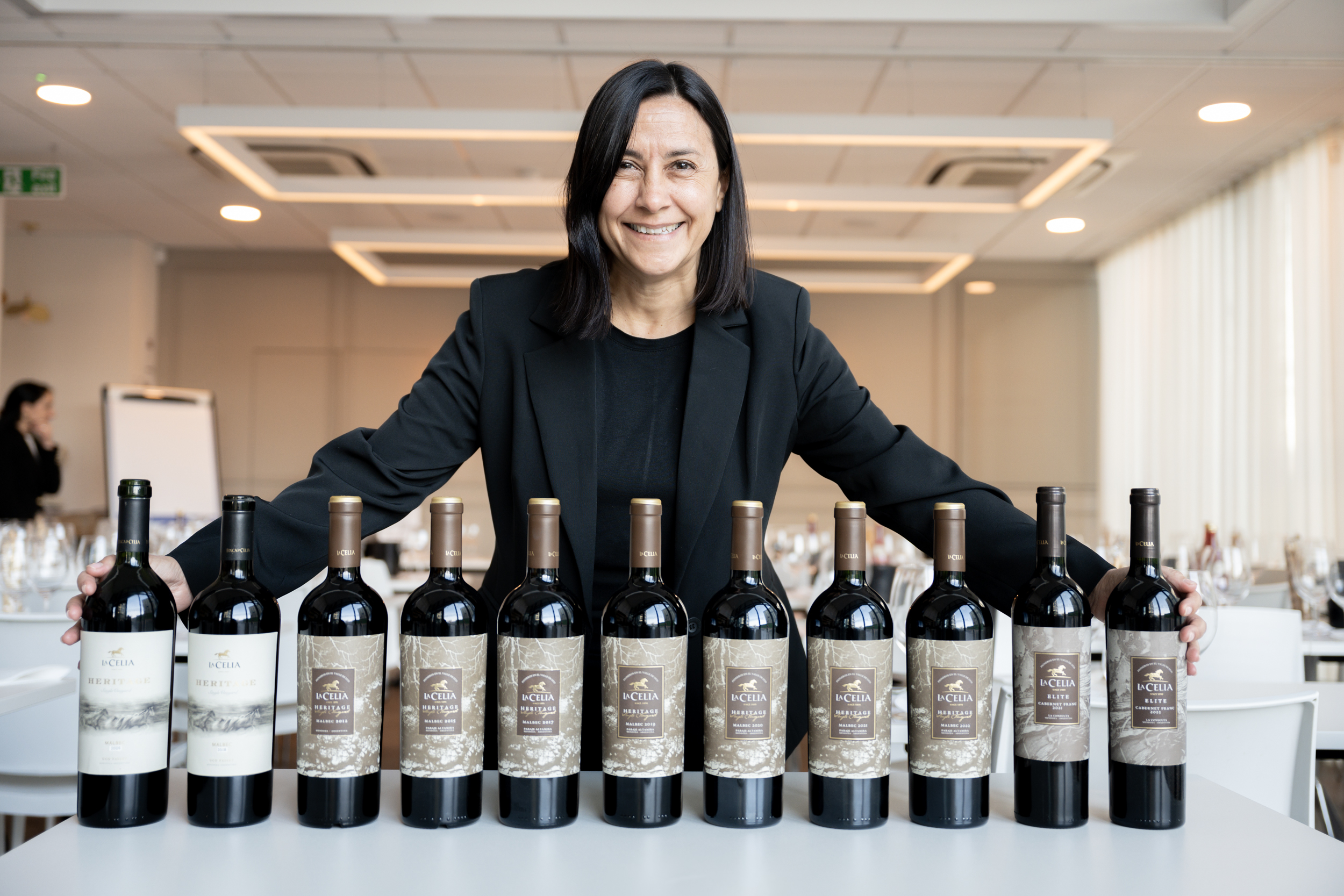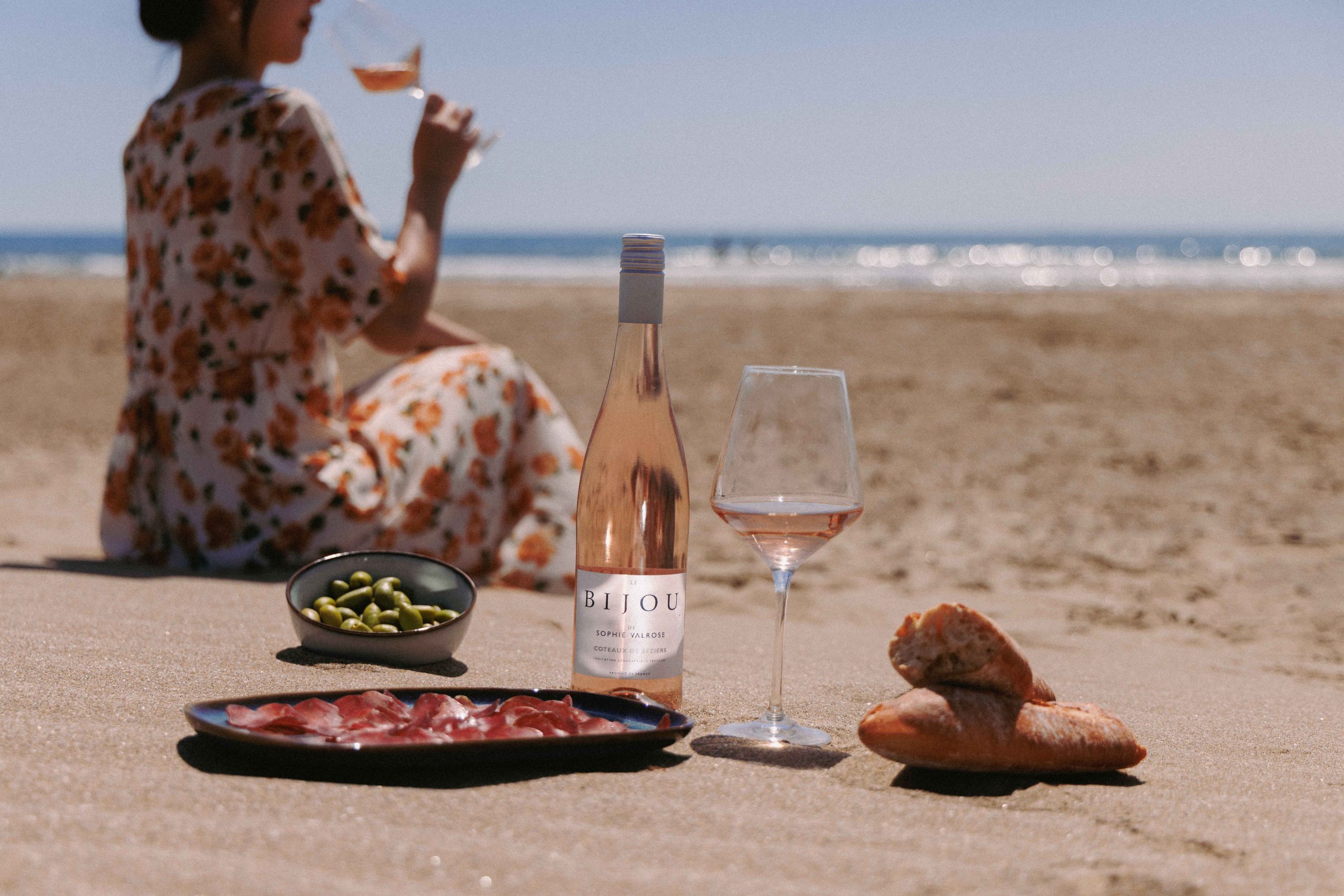Meet The Maker: David McWilliam, Padstow Distilling
By Douglas BlydeThe mind behind the lockdown launched Padstow Distilling talks to Douglas Blyde about his grain-to-glass spirits collection and finding botanicals at Gun Point.

How long has the brand been alive?
Padstow Gin was a lockdown baby. We launched on Zoom in April 2020. It seems like an age ago – and my selective memory remembers it being incredible. These things are relative I’m sure.
Paint a picture of the location of the distillery?
How much artistic licence do I have? We have a block-built unit with a corrugated roof. It’s not glam in any sense, but has a strong whiff of juniper about it.
How do the Padstow gins and the vodka encapsulate the Cornish larder, including field to glass for the base spirit?
The Cornish larder is packed with many treats. We are entering asparagus season, and our seafood is unsurpassed. I’m lucky to have friends who are fishermen. Meanwhile, our spirits reflect not only Cornwall but a much more local landscape, that of the Camel Estuary. The barley spirit, which we bottle at 40% as Padstow vodka, is remarkable. It forms a major part of our DNA in that it’s the base spirit in all our gins.
Do your gins feature atypical botanicals?
I’m a great experimenter: I have many bottles at home of trials that never made the cut. And I’m reluctant to throw them out as they’re all part of the history, the evolution. It’s these trials which led me to discover the beauty of Alexanders in our gin. They’re not unique to Padstow, but they do grow in the most glorious coastal location, on the cliffs at Gun Point at the edge of the barley fields.
What is unique about your distillation process?
Our process isn’t really unique – many people make gin after all, and many people use the same Polish stills; a few even make their own base spirit from scratch like we do. But our recipe is of course technically unique, and yet it’s not outlandish or especially unusual. We are the only distiller to be making spirits from Tregirls Farm barley – a hint at our idea of a unique terroir. Ultimately, gin really should be refreshing and it’s the bright saline zing that I recognise each time I drink it.
How best should we enjoy the spirits?
I’m reluctant to tell people how they should drink: it’s a bit like the old Gewürztraminer-with-spicy-food rule – only as good as its context. Each of our spirits has a selection of recommended serves and cocktails. Personally, I love the reliability of 50ml of St George’s Well (our original recipe 42% Padstow gin) served with six large lumps of deep-frozen ice, no garnish, and a 200ml Navas original tonic gently poured over – served in one of our ludicrously thin gin coupes (that are actually decorated Burgundy glasses). That repeatability, that consistency, is one of those things that I think people love about gin and perfect serves.
How have the products been received?
With the trade we are only just starting – and for a super-premium gin, we need people who get the provenance and the flavour. Consumers on the other hand drink our spirits in our bar and bottle shop – and we have plenty of first-hand feedback. The big tell is when the bottles get picked off the shelves for drinking at home.
How many bottles do you produce?
We are currently only making about 5,000 bottles per year, but our new distillery has a capacity of around 40,000, giving us useful headroom. We’ve always had our website for our micro-orders, but have in the last few weeks began to work with a national distributor, Thorman Hunt, to look after our interests with independent retailers and wholesalers. They have for many years sold an extraordinary range of terroir-driven wines from around the world, so we already share many of the same values.

Partner Content
Is the plan to ultimately release a whisky?
With barley in our mash tun, we would be crazy not to create whisky. More interesting will be to see how our whisky styles develop. It would be neat to show the sense of place in our whisky as well.
Are you the sole investor?
We borrow money as most businesses do, but I’m the only shareholder for now – which is about right for this little company.
Is it a sustainably-inclined endeavour?
I’m sustainably inclined myself, far more so than the distillery business at present, because our business survival trumps many greener business solutions. Looking ahead, I see a much greater emphasis toward sustainability, but for now we keep our food miles low, we refill, we reuse.
Can you welcome visitors to the site?
Although our distillery is tiny, it’s fun seeing Padstow gin as it drips from the condenser but we shan’t be offering distillery experiences until much later in the year. Besides, I see our site as the landscape where our spirits grow, and we have for over a year now run gin walks along our beautiful stretch of coast. It’s a very different kind of gin tour.
Who joins these foraging walks?
We’ve had all sorts – all sharing a love of gin – and motivated, I’m sure, at the thought of a G&T beside the sea. There’s a foraging element to them, yes, but it’s more a tour of the wonderful landscape that has inspired Padstow gin’s development. Groups are small, usually six or so, and we have a few key messages to get across, but the conversation flows freely. We’re affected by weather and tide so no two walks are the same and I love that.
What did you do before, including being a young wine waiter?
Wine was always available at home, but the wine list I poured from was like another country, a total eye-opener by today’s standards. DRC… five first growths… and a dreary Piesporter Michelsberg. The list topped out I remember at £115. It was 1987 and I was smitten. Looking back I loved the bravado of the owner, the Lotus-driving, Roy Tudor-Hughes – I mean, we had about ten Swiss wines on the list.
What advice would you give to your younger self?
I remember a constant clamour of advice when I was younger. Sifting through it for wisdom was something I was never very good at, especially as I was impetuous and knew everything. Whatever it would be, I certainly wouldn’t have listened.
Who in the world, would you most want to enjoy a Padstow product with?
Barack Obama, one of the last great grown-ups in the room. Does he drink gin, I wonder?
Finally, where may we buy your products?
We have a dear little shop-cum-bar here in Padstow, and an online shop for those who can’t make it (padstowdistilling.co.uk). Or you could try The Whistling Oyster in Chiswick for a Padstow G&T: what a lovely spot! Padstow Gin St George’s Well – our original – is £48. Rose Hawker’s Cove is £48 and our Navy Strength Stepper Point is £60.
Related news
Trump tariff explainer: the main takeaways
The Montana Distillery files for bankruptcy
Formula 1 at a crossroads: tradition meets wellness in sponsorship evolution




